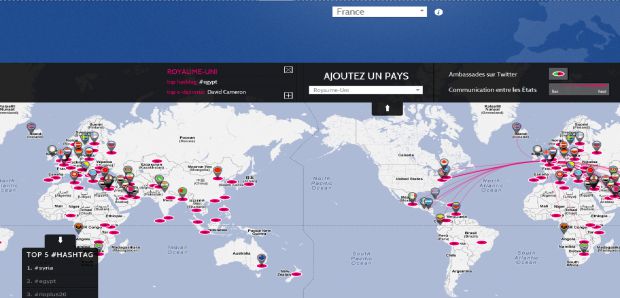Digital diplomacy is a tool to reach people
But not a replacement for traditional diplomacy
With the EU institutions being accused of being distant from the European citizens, one change the EU has made is the introduction of social media tools, such as Twitter, Facebook and so on. The first steps into the digital world were taken by then commissioner Margot Wallstrom, who started a weblog to the horror of most of her colleagues.
Today, a weblog is seen as a very useful tool and some commissioners, such as Commissioner Georgieva, have used it very effectively.
Debora Serracchiani, the Italian S&D MEP has the honour of being the most followed deputy on Twitter and she was one of the key speakers in a meeting organized in the European Parliament with two of the EU’s online communicators by Free as the Web, a project led by the Italian think tank - RENA.
She outlined the situation, “There is a big separation between citizens and policymakers. I think now we need different communication methods to our citizens. A lot of our citizens use digital information and we have to use the same tools to communicate.”
Serracchiani also says that politicians also need to improve their communication efforts, and not just use these methods during election times but as a consistent strand of communication. She also cautioned against cutting back on digital engagement, “We have to invest to decrease the digital divide. A lot of MEPs are now thinking that we have to cut this investment because we need money for jobs policies, but I think this is an important key of our development.”
Antonio Deruda, a former press officer for the US in Rome, turned consultant, noted the changes in communication, “When I worked at the US embassy we used to just send out press releases, now they're using twitter and social media, the press release is just one of the tools.” He added that when he began, they were sending out more faxes than emails to journalists, but when he left nobody could remember where the fax machine was.
However, Deruda was measured in the role digital communication has in diplomacy, noting Hillary Clinton’s globetrotting showed commitment in a way that internet communications can’t. “Shaking hands remains the most important tool in diplomacy,” he insists.
But for a real change in approach, there needs to be leadership, “You can’t do a digital revolution bottom up, you need a strong political will from the top. Where we see a strong political input we can connect it with introduction of digital strategy.”
He adds, “When we look at Twitter use by top people, we don't see any interaction, or interaction between them. They are missing the magic words, media and social. Without that, I don't see a future for digital diplomacy.”
Aurélie Valtat, in charge of digital communication at the European Council agrees that the use of social media is only part of a strategy and not a magic solution. “We have briefed Herman Van Rompuy on social media two years ago and he picked it up, but we're struggling with the interactive side.”
Noting how people use the tools differently, she added, “ it also has to do with personality. Some are more prone to sharing, being more personal than others. Traditional leaders may understand, but don't take the step into digital.”
She explains that the institutions are rethinking their approach, saying, “Social media is great but it’s not everything, we are working on getting ourselves back to basics, handshaking, doing the basic stuff is very relevant.”
Ryan Heath, spokesman for Neelie Kroes, the ‘digital commissioner’ adds, “What is interesting is digital tools level the playing field in many ways,” adding that “we should look at seeing social media as multiplying a message.”
“Young people are a key constituency, but they are disengaged group from the European project. We have to turn up and talk to them on social media.”
